- Subscribe
- Mark as read
- Mark as new
- Mark as New
- Bookmark
- Subscribe
- Mute
- Subscribe to RSS Feed
- Permalink
Hey everyone!
We're really looking forward to tonight's chat with our special guest @laurenheywood - we'll be kicking things off in about 10 minutes! There's been some great questions sent through - we've closed off the form to new questions now, but we hope you can join us for this live chat tonight
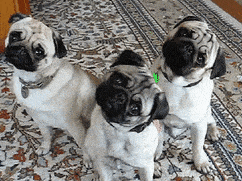
- Mark as New
- Bookmark
- Subscribe
- Mute
- Subscribe to RSS Feed
- Permalink
Hi everyone! We are stoked to have @laurenheywood joining us tonight, to chat all things COVID, burnout, and how we're all processing these strange times we've lived through.
There's been some amazing questions come in and I'm really looking forward to this chat!
We know that this topic can bring up a lot of big feelings, if you feel like you need to sit this one out it's OK- and I'll be sharing some resources for some extra support at the end of the chat if the convo does bring anything up for you.
SO- welcome, @laurenheywood !
It's great to have you here with us tonight
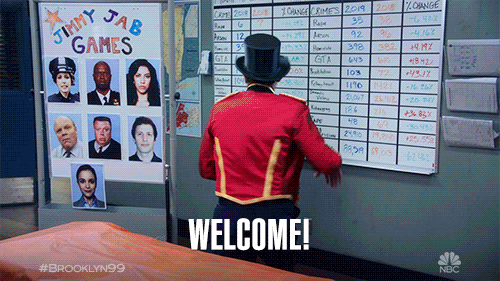
- Mark as New
- Bookmark
- Subscribe
- Mute
- Subscribe to RSS Feed
- Permalink
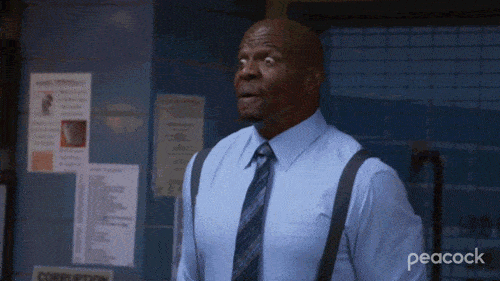
- Mark as New
- Bookmark
- Subscribe
- Mute
- Subscribe to RSS Feed
- Permalink
We are so stoked to have you with us tonight, and we've had a lot of great questions from people around this topic. It's clear reading them that these strange times have affected us all in really different ways, and there's some really thought provoking questions that we're looking forward to unpacking.
Before we get started I’d like to remind everyone that we don’t give medical advice here on the forum. If you have questions about the covid virus, vaccines or health orders, the best place to get correct information is here.
Or call 1800 020 080 (HealthDirect) - you can speak to a registered nurse there 24/7, they also have a website here
Onto our first question :
How do big world events like a pandemic impact people?
- Mark as New
- Bookmark
- Subscribe
- Mute
- Subscribe to RSS Feed
- Permalink
We've been hearing the word "unprecedented" for what feels like (and probably has been) years now - but there really aren't enough words to stress the impacts that a global pandemic can have, and how unknown all of this has been. At risk of getting us too deep in a pit of despair, COVID has affected basically everything. This includes the obvious ones like physical health issues and loss of human life, an over demand on the medical system, financial and economic loss, increased rates of tension or other concerns within the family household.
What I'm particularly interested in though, and what I think is one of the most pertinent issues - is how COVID has impacted mental health on a global scale. We know that there have been approximately an additional 53 million people globally who have been diagnosed with major depression or an anxiety disorder (that statistically it's likely may not have had mental health concerns without the impact of COVID). These rates are even more compounded in young people (lucky us! - yep I'm grouping myself in with you youngins), and then even more again when it comes to females/queer folk/people who identify as from a diverse or Indigenous cultural background. COVID has affected us all as a collective humanity, but also on a very personal individual level - which makes it feel incredibly overwhelming.
But! COVID being a big world event also means that we are not alone. And although that doesn't always feel comforting when we are isolated or lonely - I've found that there's a lot of power in knowing that I have been, in some way, together with the rest of humanity in my loneliness. It's a paradox, but I think it's an important concept to cling to.
- Mark as New
- Bookmark
- Subscribe
- Mute
- Subscribe to RSS Feed
- Permalink
I feel like covid has brought a lot more attention to the importance of mental health. Althought it feels more on a superficial level to me if that makes sense?
- Mark as New
- Bookmark
- Subscribe
- Mute
- Subscribe to RSS Feed
- Permalink
I do hear you on that one @Lost_Space_Explorer5 . I am glad that there seems to have been a much more widespread conversation about mental health from the early days of the pandemic- I think that any raised awareness of mental health and its importance is a good thing. But I also share your frustration that sometimes it still seems to be happening at a fairly superficial level, and I really hope that we continue to see sustained investment in a wide range of mental health services and programs.
This is probably also a good time for me to mention to everyone reading that there are a few free services that you may not be aware of, that have been designed for people who might need some extra support at the moment. I'll list them again at the end of this chat, but for anyone who may be interested, the following services are free and available to anyone in Australia:
Beyond blue covid support hotline
- Call 1800 512 348 for phone support service
Head to help
Please call 1800 595 212 to talk to a mental health professional and to find the best service for you.
Mindspot: : Free, anonymous digital mental health assessment & treatment
1800 61 44 34
- Mark as New
- Bookmark
- Subscribe
- Mute
- Subscribe to RSS Feed
- Permalink
Sorry I only just saw this, the order of posts is confusing me a bit 😂 Yeah it's good that there's more awareness, it's a start at least!
I'd say definitely check those resources out for anyone reading! I've tried out Mindspot and have been doing a pain course which had been a bit helpful for me 🙂 Of course there are so many places to get help and it's up to an individual to choose if they want help and where to get it!
- Mark as New
- Bookmark
- Subscribe
- Mute
- Subscribe to RSS Feed
- Permalink
Lol that's probably my bad @Lost_Space_Explorer5 - this is my first time doing an AMAA with the new online community, so I'm totally to blame if the order's got a bit mixed up!
Oh that's great to hear that you're finding the pain course somewhat helpful, I know from experience how rough chronic pain can be, and it shows so much strength and grit on your part to continue to try different things that may be helpful.
I love that- there are so many options out there, and a lot of people find different things helpful at different points of their life too. It's great that we live in a time where there's more choices out there compared to 20 years ago- I hope that in 20 years time there's things out there that we couldn't even imagine now 💛
- Mark as New
- Bookmark
- Subscribe
- Mute
- Subscribe to RSS Feed
- Permalink
Hey everyone! Sorry I'm a bit late. Thanks for speaking tonight @laurenheywood 🙂
I'll probably be in and out during this chat I hope that's okay
- Mark as New
- Bookmark
- Subscribe
- Mute
- Subscribe to RSS Feed
- Permalink
Great to see you @Lost_Space_Explorer5 ! And that is absolutely fine, it's lovely to have you with us for however long you can join in for 🙂
@WheresMySquishy I couldn't agree more- it's one of the reasons that I'm really passionate about co-design and listening to/ learning from people with lived experience - I'm hoping that in the future, the mental health system is able to truly meet people where they're at.
- Mark as New
- Bookmark
- Subscribe
- Mute
- Subscribe to RSS Feed
- Permalink
@laurenheywood I like what you said about mental health issues and coming from a diverse or Indigenous background. My colleagues and I were just chatting about the unique challenges and how people who come from a diverse background can be over-represented in the mental health system. Often, the mental health system takes on a 'one size fits all' approach rather than creating interventions or systems with diverse groups of people in mind.
- Mark as New
- Bookmark
- Subscribe
- Mute
- Subscribe to RSS Feed
- Permalink
💯💯
I think meeting people where they are at is the only way to really do therapy! The client is always the expert because only they have access to the true experience. They bring the wool to the session, and tell me which colours they see and what our end goal is. I'm only there to help untangle some of the knots on the way.

- Mark as New
- Bookmark
- Subscribe
- Mute
- Subscribe to RSS Feed
- Permalink
@laurenheywood that is so true- I feel like I've heard the word "unprecedented" so many times lately that I've almost become a bit immune to it- but there's truly nothing else in our lifetimes to compare the experiences of the last few years to. It's a strange feeling knowing that you're living through a time of such profound and all encompassing change.
I really love what you say about the power of knowing that we're all experiencing this as a collective, even when at times it's also been a profoundly lonely experience.
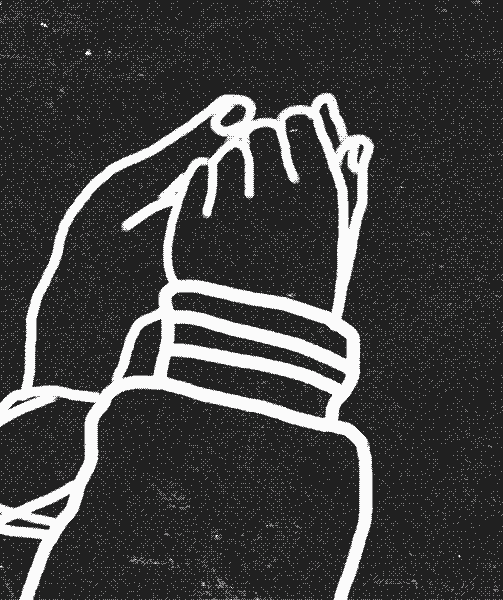
I feel like I'm only just starting to come to terms with the degree of change we've seen, in almost every aspect of our lives.
The next question really struck a chord with me- I know that a lot of people in my life have been having similar feelings, especially as we start to slowly open up again:
my body has changed during Covid, how do I cope with seeing these changes and feeling comfortable in my own skin?
- Mark as New
- Bookmark
- Subscribe
- Mute
- Subscribe to RSS Feed
- Permalink
This question is so incredibly important and I think the majority of people hearing it asked would give a resounding "here, here!". Can I say - I adore how this question has been worded. Isn't it just crucial to remember that changes in our physical body do not mean that "we" (as in, our very personhood/identity) have changed? I know I get tricked into a whole of evaluating myself exclusively based on my appearance more than I would like to admit (psychologists are insecure humans too!). So, here are some of the thoughts that I have found the most helpful to comfort and guide not only my clients, but myself as well.
Firstly, statistically (🤓) more people have experienced some kind of body change during COVID than those who have not. So join the club I guess! Let's be real, we've had no access to gyms, hairdressers, any kind of self-care providing facilities, and nor have we had any reason to leave the house or expose ourselves to other human beings. That combined with the insane amount of stress our bodies and minds have been under - it's no wonder that there have been physical changes, and in particular, somewhere between 30-50% of people have gained body weight during COVID. And this likely isn't even exclusively due to gyms closing or because of using food to regulate when we are bored or emotional (again - super normal!). I'd like to introduce you to something called Cortisol - our stress hormone. The reason our body can change so drastically under stressful conditions (particularly long-term chronic stress), is because our body releases more and more of this hormone when it perceives it is under threat. And what were humans typically under threat of back in caveman times? Bad weather, no shelter, no food. So our bodies were evolutionarily conditioned to combat this by putting on weight, slowing down all of our internal systems, and even growing more hair to keep us warm.
The point of all this, is that our body changes might primarily be because our bodies and minds are brilliantly trying to protect us from an incoming threat - and COVID certainly is just that.
So, if not to feel negatively about our body changes, then how to feel? My favourite things to say to clients is "be kind to yourself" and to "thank your body for what it does for you rather than shaming it for how it looks to you". Focus on what your body does for you, rather than what it doesn’t, what has changed, or what you don’t like. I love my arms because they mean I can cuddle my girlfriend. I love my legs because they take me for walks. My eyes allow me to see and appreciate sunsets. Even writing these things down/journaling can help! Practice self-compassion – our bodies have carried us through the trauma of a global pandemic, they are amazing.
And finally, when you do start to explore the outside world, do it with people who are body positive or who are not focused on appearance in a way that might be unhelpful to you. It’s okay to be selective about whose words you expose yourself to. Your body and mind have kept you alive through the threat - so be kind to them and take your time.
- Mark as New
- Bookmark
- Subscribe
- Mute
- Subscribe to RSS Feed
- Permalink
Woah that's super interesting about cortisol being evolutionary adaptive! And I can definitely relate to worrying about changes in my body during lockdown. I like the focusing on what my body can do
- Mark as New
- Bookmark
- Subscribe
- Mute
- Subscribe to RSS Feed
- Permalink
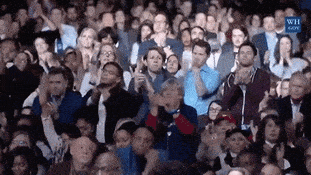
@laurenheywood I can't even tell you how much I love your response!! It's so refreshing to be reminded that changes that many of us have experienced are a NORMAL response- and actually a result of our body trying to protect us ❤️
I'm also a huge fan of body positivity and I've found that curating my social media has been extremely helpful with that- being really selective about what media I choose to consume has had a surprisingly big impact! And I love what you say about focusing about what your body does and why you're grateful for it.
I feel like a lot of people may relate to this next question - I know I really do:
I feel like this pandemic changed me so much. I never used to care about getting sick or anything. Now I'm constantly anxious about getting covid or someone i love getting it. Advice??
- Mark as New
- Bookmark
- Subscribe
- Mute
- Subscribe to RSS Feed
- Permalink
Just like we talked about our bodily changes during perceived threats, our brain changes too - which is why it's almost to be expected to be feeling constantly anxious, particularly around health issues, right now. I know I keep talking about how normal all of these things are - but it's the truth!
Normally the work psychologists / therapists do with clients surrounding health anxiety (or any type of anxiety for that matter) involves some kind of thought challenging. This means helping clients to identify thoughts that they feel are out of sync with the situation at hand or that are unhelpful to them and don't need to be clung on to, and then to actively work to challenge these thoughts/beliefs - e.g., seeing the situation from a different perspective, trying to "zoom out" instead of focusing only on one aspect, pointing out how our negative self talk is unhelpful and inaccurate.
In the middle of a global pandemic, health anxiety is difficult to challenge because it's not unrealistic. In this case, it might not be as simple as challenging our worries with how "realistic" they are, but challenging them using questions like, "Is worrying like this working for me? Is it helping me? Is my constant worrying constructive?".
The reason we worry or feel anxious is because it gears us up for action. So sometimes, worrying or feeling anxious is warranted, and is both helpful and constructive. This might be a gut feeling telling us we don't feel comfortable, or feeling nervous before an exam or sports match - anxiety speeds our internal systems up, which means we have more adrenaline, and so, the right amount of anxiety is good!!! In COVID times though, I suspect my constant worry doesn't serve too much of a purpose. Once I've followed all the health advice that I can, there's not much that checking the case numbers every hour will do to prevent the possibility of me or someone I love getting sick.
So now you know that this worry may not be helping you, just stop right? Just stop worrying because it's that easy?..... Nope. If you're anything like me, it's not that simple. So what can we do to manage our constant rumination or worry?
- Limit or avoid unhelpful media and misinformation - limit yourself to accessing COVID information for brief periods of time and only from reliable/trusted sources. Know when it's time to switch off the TV, and this might help to switch off your brain a little.
- Schedule "worry time" - if you're someone who struggles with worry, I highly recommend looking into this more. Basically - you set yourself strict time periods of when and where you can worry about COVID stuffs. E.g., in my bedroom at 9pm, I'll give myself half an hour to just stress out about all things pandemic. Before and after the 9:30pm limit, that's done for the day. No more COVID worry. If worries pop up, don't judge yourself, just write them down or make a mental note - you'll have your designated worry time to stress out over these later. This one is particularly good for compartmenatlising your worry so that it doesn't bleed into and take over other spheres of life.
- Cut down on any behaviours that fuelling your health anxiety - like constant checking Dr Google, actively seeking out information about potential symptoms you/your loved ones may have, or scanning your body for any feeling of being unwell. It almost sounds too basic to say, but it hadn't occurred to me until I got therapy for myself, so here it goes - Worrying about getting COVID-19, as understandable is the worry is, ultimately won't stop me from catching COVID.
- Mark as New
- Bookmark
- Subscribe
- Mute
- Subscribe to RSS Feed
- Permalink
Those tips are all absolute gold @laurenheywood - I have a few people in my life who live with health anxiety, and this have been especially tricky times for them. I've also found myself spending way too much time some days on reading news articles, keeping track of case numbers - and I love your suggestion of having a designated 'worry time'.
What you say here is SO spot on: "
In COVID times though, I suspect my constant worry doesn't serve too much of a purpose. Once I've followed all the health advice that I can, there's not much that checking the case numbers every hour will do to prevent the possibility of me or someone I love getting sick. "
I know that as things are opening up more, I'm finding my anxiety starting to spike a bit again- but I also know that I've followed all of the health advice that I can for myself and my family, and that worrying too much will just bleed into the areas of my life that do bring me joy.
The next question really resonated with me: I think lot of us are actually experiencing slightly mixed feelings about lockdown ending, for a variety of reasons:
I'm feeling weird about going back to 'normal' - some days I'm really excited, other days I'm just not ready to be back in the old routine.I'm not as comfortable as some of my friends are with going out to crowded places and huge social events. Do you have any advice?
- Mark as New
- Bookmark
- Subscribe
- Mute
- Subscribe to RSS Feed
- Permalink
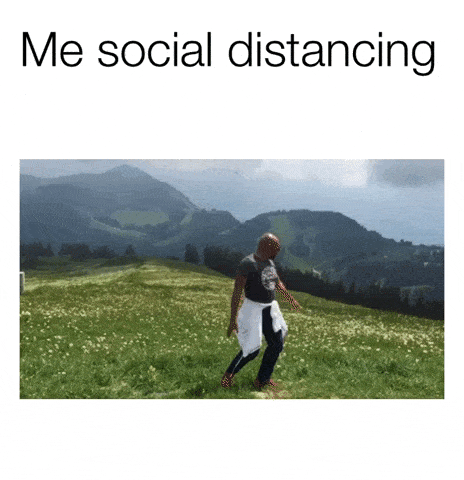 Something I've noticed in so many of the questions that y'all have asked is the irony of us wanting to make sure that our responses are "okay" and "normal". Here's a thought: it is absolutely normal to feel any kind of feeling ever. And you know what, it's even MORE normal to feel every possible kind of feeling during a global crisis. There are no right or wrong answers here, and our feelings by definition cannot be wrong - if we feel them, then they just are!
Something I've noticed in so many of the questions that y'all have asked is the irony of us wanting to make sure that our responses are "okay" and "normal". Here's a thought: it is absolutely normal to feel any kind of feeling ever. And you know what, it's even MORE normal to feel every possible kind of feeling during a global crisis. There are no right or wrong answers here, and our feelings by definition cannot be wrong - if we feel them, then they just are!
And so, mixed emotions to be expected. I'm loving seeing my family and friends again, don't get me wrong, but I'd be lying if I said I'm not a little bit nervous about losing my "me time" (#introvertsunite). Mixed emotions can also point to something that you may have learned about yourself during COVID - that you value time spent alone, or in small groups, or simply that you prefer to socialise in small doses with time to recharge.
Let's take the pressure off - there is no "normal", there hasn't been for a while, and the lockdown lifting will bring difficult adjustments with it. Our minds need to learn how to do most things... how to socialise, make plans, have small talk, meet new people, juggle work/study/social life - and some people might fall back into it more easily than others, but that doesn't mean that there is something weird or wrong or abnormal about us.
Self-care and self-compassion are again so important. Be kind to yourself. Establish boundaries and learn to say no. There will be natural differences between you and your friends or family, and comparison is the theif of joy in this instance. Do things at your own pace, explore what you feel comfortable doing, speak with trusted friends/family/or a therapist, ease slowly into adjusting into COVID-normal. Treat yourself like you would an anxious young kid who doesn't want to bomb into the pool like their friends. Remind yourself that it's okay to want to dip your toes in the pool before diving in, especially when the pool actually is lots and lots of people, because that stuff is legit scary. You've got the rest of your life to get back to it all - there's no need to rush.
- Mark as New
- Bookmark
- Subscribe
- Mute
- Subscribe to RSS Feed
- Permalink
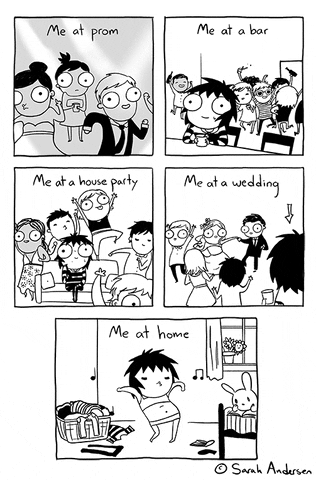
Ahhh I love this @laurenheywood - I'm also loving seeing family and friends, but my introverted heart also sings when I finally get time alone to recharge!
I love what you say about self compassion and the danger of falling into thinking about what we 'should' be doing - I feel like there's so many of us who are sitting with this ambivalence, but a lot of us don't actually talk about it for fear of seeing rude, or 'weird', or somehow doing the end of lockdown 'wrong'- when actually, it's totally fine and natural to want to take things at your own pace.
I know that I've found the 're-entry' into social stuff both exhiliarating and exhausting at times, and I really related to this next question as well: starting back up with 'normal' routines has actually been quite exhausting for a lot of us
I dont know what to do because everyone in my life is so happy lockdown is over and im actually upset. I liked having more time to myself and spending time at home. How do i get used to my old routine? During lockdown, I’ve gotten used to staying at home and dedicating a lot of my time to school/uni. How do I manage my time when my life goes back to normal and I have to go back to work, socialising, etc
- Mark as New
- Bookmark
- Subscribe
- Mute
- Subscribe to RSS Feed
- Permalink
Hooray for liking time spent with ourselves! I think that's one of the positives (granted, there are only a few...) of the last two years. I don't know all of your circumstances, so it's a bit hard to give specifics, but I reckon the spirit of this question is similar to the one before it. I'm wondering if you too have learned an amazing thing about yourself - you like hanging out with yourself! Oh my goodness, isn't that just the actual best gift? To actively enjoy your own company?! Maybe I could go so far as to say that this knowledge might actually better inform how you spend and use your time? Make this realisation work for you! Were you been carving out enough space for alone / home time before COVID? Is this time refreshing for you? Is it something you'd like to do more of, instead of worrying about giving it up?
In a very practical sense, when everything returns to a COVID-normal - we'll have responsibilities and routines we have to re-engage with that we may not have had to for quite some time - and feeling upset, anxious, worried, excited, confused, or all of the above, makes complete sense. A simple strategy might be using a diary or any kind of digital template (I'm a fan of excel spreadsheets myself...) to develop a schedule that includes my working hours, university work, social time, and most importantly, scheduled rest/"me time". It might even be the case that you start slowly and gradually work up to the prior commitments that you had, if you are able to. This could look like only committing to one social event per week/fortnight/month to begin with, only taking occasional shifts at work, or setting designated time aside to be at home.
- Mark as New
- Bookmark
- Subscribe
- Mute
- Subscribe to RSS Feed
- Permalink
I love that @laurenheywood - and when I reflect on it now, I think that the most recent lockdown actually did give me some gifts. I re-discovered a love of bushwalking, often by myself- it's not something I ever would have made heaps of time for pre lockdown, but it really did leave me feeling totally replenished in a way that other activities don't. I'm hoping that i continue to appreciate the value of time by myself, in nature, in post lockdown life

I thought this next question was a really interesting one from someone looking at specific stuff around getting back to 'normal' life and our different levels of comfort with stuff - specifically, hugging:
I'm not as comfortable as i used to be with hugs/physical closeness. The problem is everyone knows me to be a hugger...my question is how do I tell people that i don't feel the same anymore? i don't want to upset people so i don't say anything
- Mark as New
- Bookmark
- Subscribe
- Mute
- Subscribe to RSS Feed
- Permalink
Ugh, gosh you guys ask such insightful and valuable questions.
I think the first thing to say in this space is that you are never responsible for not upsetting other people if it comes at the direct cost of unwanted / unwelcomed physical touch. No wait - ESPECIALLY if it comes at the cost of non-consensual touch. By which I mean anything other than an excitable resounding "yes!" is a "no" - even when it comes down to hugs or platonic affection. This is an important piece of the puzzle to have firmly in place, because I really do think its non-compromisable.
And it's important to start with that - because the question then cannot be "Should I go along with it?" or "Do I keep hugging my friends because it's what I used to do?". Instead the question becomes, how do I communicate what I'm feeling to my friends/family? To which my response would be with transparency. Give your friends the opportunity to respect your boundaries, and to respond to your discomfort with understanding and validation, and let them show you that they're friends worth having.
